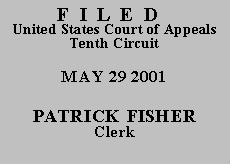

| UNITED STATES OF AMERICA,
Plaintiff-Appellee, |
|
| v. | |
| ERIC LONNIE NEILL,
Defendant-Appellant. |
|
Defendant Eric Lonnie Neill appeals from his convictions on six counts of bank fraud and his sentence of fifteen months. His counsel has filed a brief pursuant to Anders v. California, 386 U.S. 738 (1967), raising three issues: (1) whether the indictment should have been dismissed under the Interstate Agreement on Detainers; (2) whether the court erred in finding Neill was an organizer, leader, manager, or supervisor pursuant to U.S.S.G. § 3B1.1(c); and (3) whether the court erred in increasing Neill's base offense level both for being an organizer or leader and for being involved in more than minimal planning. We dismiss the appeal.
Neill was charged with thirty-four counts of bank fraud. As a result of a plea agreement, he entered pleas of guilty to six counts, executing a Statement In Advance of Plea of Guilty, which provided in part:
8. I know that there is no appellate review of any lawful sentence imposed under a plea of guilty.
9. I know that, under 18 U.S.C. § 3742(a), I may appeal a sentence imposed under this plea of guilty in any of the following circumstances:
(a) If the sentence was imposed in violation of the law.
(b) If the sentence was imposed as a result of an incorrect application of the sentencing guidelines.
(c) If the sentence is greater than the sentence specified in the applicable guideline range to the extent that the sentence includes a greater fine or term of imprisonment, probation, or supervised released than the maximum established in the guideline range, or includes a more limiting condition of probation or supervised release under 18 U.S.C. § 3563(b)(6) or 18 U.S.C. § 3563(b)(11) than the maximum established in the guideline range.
(d) If the sentence was imposed for an offense for which there is no sentencing guideline, and the sentence is plainly unreasonable.
10. As noted above, I understand that a sentencing guideline range for my case will be determined by the Court in accordance with the Sentencing Reform Act of 1984. . . . Acknowledging all this, I knowingly and voluntarily waive my right to appeal any sentence imposed by the Court and the manner in which the sentence is determined, so long as my sentence is within the statutory maximums . . . I also waive any right to challenge or appeal the conviction in this case based on any claim of violation of the Speedy Trial Act or any claim of violation of the provisions of the Interstate Agreement on Detainers. I also waive any right to challenge the sentence or the manner in which the sentence is determined in any collateral attack, including, but not limited to, a motion brought under 28 U.S.C. § 2255.
Statement at 3-4. At the plea hearing, the following exchange occurred:
THE COURT: Let's see. You waive the right to challenge or appeal the conviction in this case based on any claim of violation of the Speedy Trial Act or any claim of violation of the provision of the Interstate Agreement on Detainers. "I also waive any right to challenge the sentence or the manner in which the sentence is determined and any collateral attack." Do you understand those waivers?
NEILL: Yes.
Transcript at 7-8. The presentence report indicated that based on Neill's total offense level of 13 and a criminal history category of II, the guidelines range of imprisonment was fifteen to twenty-one months. U.S.S.G. § 5A. The court imposed a sentence of fifteen months.
We enforce the terms of a lawful plea agreement. See United States v. Hernandez, 134 F.3d 1435, 1437 (10th Cir. 1998). If a defendant knowingly and voluntarily waives his statutory right to appeal, a sentence is generally enforceable. See id.
We have examined the sentencing transcript, the plea statement, and the entire record on appeal and conclude the plea agreement was entered knowingly and voluntarily by the defendant in exchange for promises favorable to him. The sentence imposed was not an illegal sentence and was not greater than the sentence specified in the applicable guidelines range.
Neill waived his right to bring this appeal. Counsel's motion to withdraw as counsel for Neill is GRANTED. The appeal is DISMISSED.
Entered for the Court
Mary Beck Briscoe
Circuit Judge
*.This order and judgment is not binding precedent, except under the doctrines of law of the case, res judicata, and collateral estoppel. The court generally disfavors the citation of orders and judgments; nevertheless, an order and judgment may be cited under the terms and conditions of 10th Cir. R. 36.3.